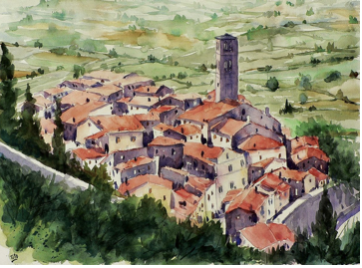Stefania De Curtis
(INFN Firenze)
23/05/2018, 14:30
I’ll review the implications of composite Higgs scenarios from a theoretical and phenomenological point of view. They represent a natural possibility for the Electroweak Symmetry Breaking induced by a strong dynamics giving rise to new composite particles. These are ideal targets for the LHC program because they can produce visible effects without conflict with direct bounds.
Pasquale Calabrese
(SISSA)
23/05/2018, 15:20
Entanglement and entropy are key concepts standing at the foundations of quantum and statistical mechanics. In the last decade the study of the non-equilibrium dynamics of isolated quantum systems revealed that these two concepts are intricately intertwined. Although the unitary time evolution ensuing from a pure initial state maintains the system globally at zero entropy, at long time after...
Valentina Forini
(City University London and Humboldt Univerisity Berlin)
24/05/2018, 14:20
I will discuss perturbative and non-perturbative approaches to the quantization of the superstring sigma-models relevant in AdS/CFT, reporting in particular on the use of lattice field theory methods in this context.
Antonello Provenzale
(CNR Institute of Geosciences and Earth Resources)
24/05/2018, 15:10
Planetary climates are complex systems composed of many interacting components. In the case of Earth, the atmosphere, oceans, cryosphere, geosphere and biosphere interact nonlinearly on a multitude of spatial and temporal scales, generating feedback mechanisms that lead both to climate variability on all time scales, as well as to long-term stability of the climate system that has allowed life...
Vittorio Del Duca
(ETH Zurich and INFN LNF)
25/05/2018, 15:20
In the last few years, a lot of progress has been made in understanding the analytic and algebraic structure of multi-loop scattering amplitudes.
I shall review some of that progress for amplitudes at weak coupling.

